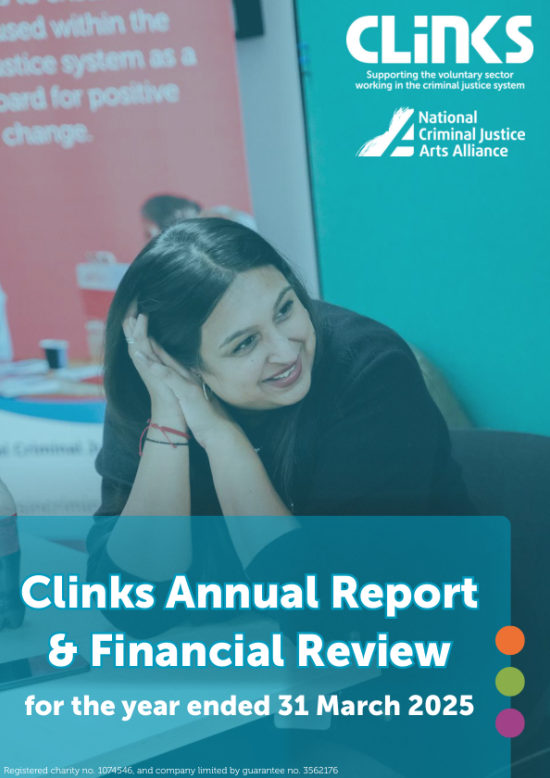Clinks received a letter this week from the Ministry of Justice, that explained the four criminal justice payment by results pilots were to be put on hold while they consider "the strategic direction for the use of PbR as part of the overall reform of probation and the wider system."
You can download the full letter at the bottom of this blog.
Clive Martin, Director of Clinks, has written a blog for Third Sector magazine, which can be read in its entirety here:
The payment by results steamroller has paused. What should the Voluntary and Community Sector make of this?
We, in the Sector, have long argued that we should be paid for outcomes. Put simply: reward us for success. And the early excitement was that payment by results would achieve this. It was thus welcomed by many, albeit with the proviso that we needed to know more about the detail.
However, it’s got bogged down in that detail – a lack of clarity about where the necessary cash flow to underpin delivery would come from; disputes about what success means when working with people with multiple and complex needs; and how could any one organisation claim success when so many are a necessary part of the complex web that offers marginalised people a route back to mainstream society? These were just some of the issues that the payment by results initiative faced.
Is this a welcome pause?
Well, in parts, yes. After all, it could be just another in the list of stalled engines that were intended to set the Voluntary and Community Sector storming down the track of criminal justice reform: ‘Best value’, ‘Working Prisons’, ‘The Rehabilitation Revolution’, ‘The Probation Review’. Meanwhile, the Rome that is the VCS burns. Income for the Sector is down; demand for services is rising to unsustainable levels; the knowledge, skill and expertise of the Sector has been relegated to a subordinate, sub-contracting role; payment by results is already causing casualties... the list goes on.
What does the future hold?
Well, this is not the sort of interval where we can head to the bar for drinks. It’s more the chance to re-marshal the arguments for the Sector. First, we need to reiterate the point that good results (however they are funded) can only be delivered by strong and effective organisations. No organisation has a right to survive and the Sector cannot expect government hand-outs to keep it on its feet - not that it ever has. But we should expect frameworks that allow us to play to our strengths.
Government must act responsibly and reasonably towards a Sector and ally that shares many of its ambitions – getting people out of trouble and into constructive lives; building safer neighbourhoods; finding long term solutions to well embedded anti-social and criminal activity.
So before we think of what payment by results might fund, we need to agree some ground rules that will ensure the sustainability of the Voluntary and Community Sector organisations expected to deliver results using this model. What could these be?
For consideration during this pause:
- An acknowledgment that payment by results could transform service provision, but within that shared ambition, the risks associated with a new and untested financial model need to be more frankly assessed and apportioned to those best able to sustain and manage them.
- A commitment to a funding mix that includes grants, outcome contracts and then payment by results frameworks for specific initiatives that recognise the high risk nature of the latter.
- The clear decision that hard earned charitable reserves and wider organisational resources should not be used as collateral for experimental services. They are valuable community assets that the payment by results experiment should, at best, assist in building and consolidating, but certainly should not endanger.
- A discussion about who needs to orchestrate and broker the many relationships that payment by results will necessitate.
- A recognition that payment by results should be based on full cost recovery.
While it is perfectly legitimate for government to roll back its delivery role and implement localism, it does beg the question of what the role and responsibilities of central government might be in a world of contracted out service delivery and localism? Surely part of the answer is to create fair and sustainable frameworks that will enable its key partner in the fight against crime to play their full part. If the pause sets that debate off, it will have been worthwhile.
Download the letter from Ministry of Justice: 2012-09-28%20PbR%20VG%20letter%20existing%20pilots.doc
What's new
Blogs
Anne Fox CEO of Clinks to stand down after a decade of service
Latest on X
The role is for a leader from an organisation focused on racially minoritised people, with expertise in service delivery, policy, advocacy, or related areas in criminal justice. Racial disparities are present at every CJS stage. This role ensures these voices are central in shaping policy to help address and eradicate them. Apply by Mon 18 Nov, 10am. More info: https://www.clinks.org/voluntary-community-sector/vacancies/15566 #CriminalJustice #RR3 #RacialEquity

